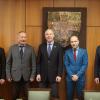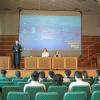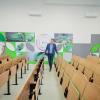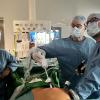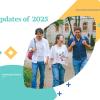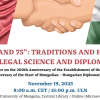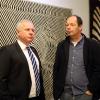Sustainable Tourism, in Theory and in Practice
2022
May
30
The fascinating, unique study programme called International Tourism and Hospitality Academy at Sea (ITHAS) has been created by the enthusiastic, charismatic dr. Nevenka Čavlek, a tenured professor at University of Zagreb, Faculty of Economics and Business. The experiential learning course, which includes an eight-day sea voyage filled by academic lectures, riveting discussions on board, has been organized since 2005 either in Croatia or in other countries, alternating biannually, with a different focus each year. In 2021, two students from the University of Pécs, Faculty of Business and Economics had the chance of a lifetime to join a diverse group of 25 students from other international universities, cultures, countries on a 30-day study tour focusing on sustainability in tourism aboard of a magnificent, 80-meter boat sailing the Persian Gulf from Oman to Dubai with participation at Dubai Expo. I asked professor Čavlek about this amazing project, which creates lasting connections among students, cultures, universities.
How did you create the ITHAS study programme?
 I have been working at the Department of Tourism, University of Zagreb since 1993. Before that, I was deputy director of an international tour operating company specialized in Croatia. Ever since, I keep very close ties with the tourism business. This helps me to share everything what I know in theory with my colleagues in practice and also to make my students aware, how important it is to connect theory to practice. You should always follow research that the academia does, and then try to implement it in practice.
I have been working at the Department of Tourism, University of Zagreb since 1993. Before that, I was deputy director of an international tour operating company specialized in Croatia. Ever since, I keep very close ties with the tourism business. This helps me to share everything what I know in theory with my colleagues in practice and also to make my students aware, how important it is to connect theory to practice. You should always follow research that the academia does, and then try to implement it in practice.
When I started this programme of experiential learning in the field of tourism in 2005, I did it because I knew exactly what students were missing. Whatever I do in the classroom, it is not enough to pass on the message, what tourism is actually about. The point would be to allow students from different cultures to meet and experience tourism.
So I arranged a pilot project in cooperation with other four international universities that I had good relationships with. I chartered five small wooden boats that could accommodate between 15-20 students each. I planned the itinerary, I set the topic, and I invited these universities to join my students on this trip on the Adriatic coast. Both the first and the second pilot projects were very successful. At that time, I had partners from Finland, from Germany, from Spain and Canada.
It was an organizational challenge to control five boats, because you can only be present on one. Professors from other universities helped: they taught the same lecture, but to a different group of students each day, aboard a different ship. Students stayed on one boat, and met the other students on shore, when we docked. We never sailed during the night. When we arrived at a particular port, we met local tourism experts, we went to see the hotels, tourist boards, museums, we went sightseeing. We heard how interpretation of a culture is done by some tour guides and so on. I was not always looking for the best practice. I was also looking for the worst practice, because students can learn from that as well.
Why have you chosen the sea?
I wanted to incorporate all the senses. I was thinking, what connects us all? Only the water. It brings us anywhere.
Water is connection: the river, the sea, the oceans. You can really move without obstacles, easily, although it is kind of a challenge in stormy times. But this is like life in tourism. It is not only nice weather and everything perfect. This is something that the students have to experience at the beginning of their learning. We had some storms on the Adriatic Sea. But I can say, it never bothered us. This is nature and you take it as it is and you learn from it.
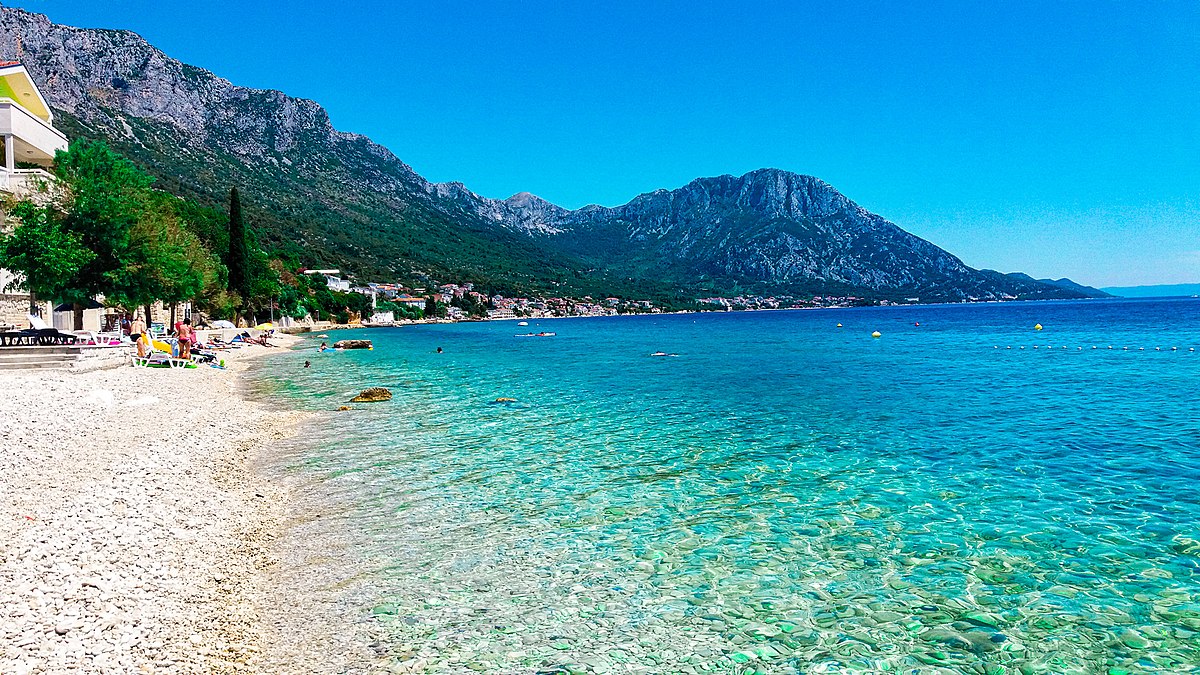
Coast of Adriatic Sea in the southern part of Makarska Riviera (Photo: wikipedia)
When did you first go abroad with the project?
The idea was that every other year, another university from another country would invite my students and me to be part of this kind of education in their countries. I was waiting and hoping that we would go abroad, then, they said this is not possible to do in their countries at as favourable prices as in Croatia. But
when somebody says to me that something is impossible, I grab that challenge immediately.
I wanted to show them that I could do something in different countries and make it still affordable to students, because the students pay for the trip, including me. But it must be sponsored.
In 2007, I charted a boat that took us on the river Danube from Germany, Passau, via Austria, Vienna, then also Slovakia and then down to Hungary, Budapest and also Kalocsa. Since then, the partnering institutions decided that I was going to organize it, and I have kept my promise. In 2011, we were in Montenegro and Albania, which was excellent. Then, in 2013, the international component was organized in Bosnia and Herzegovina. Another year, I combined Venice, Italy to this.
I keep challenging myself all the time.
Could you tell us more about the 2021 ITHAS?
The German University of Technology in Muscat, Oman joined the International Tourism and Hospitality Academy at Sea as well, realizing what it really means to the students, how much they appreciate this kind of education. Professor Heba Aziz asked me whether I would be interested to organize it in Oman. I said yes, of course. The plan was to combine a tour to Oman with Dubai, to allow the students to visit Dubai Expo 2020, which was postponed until 2021.
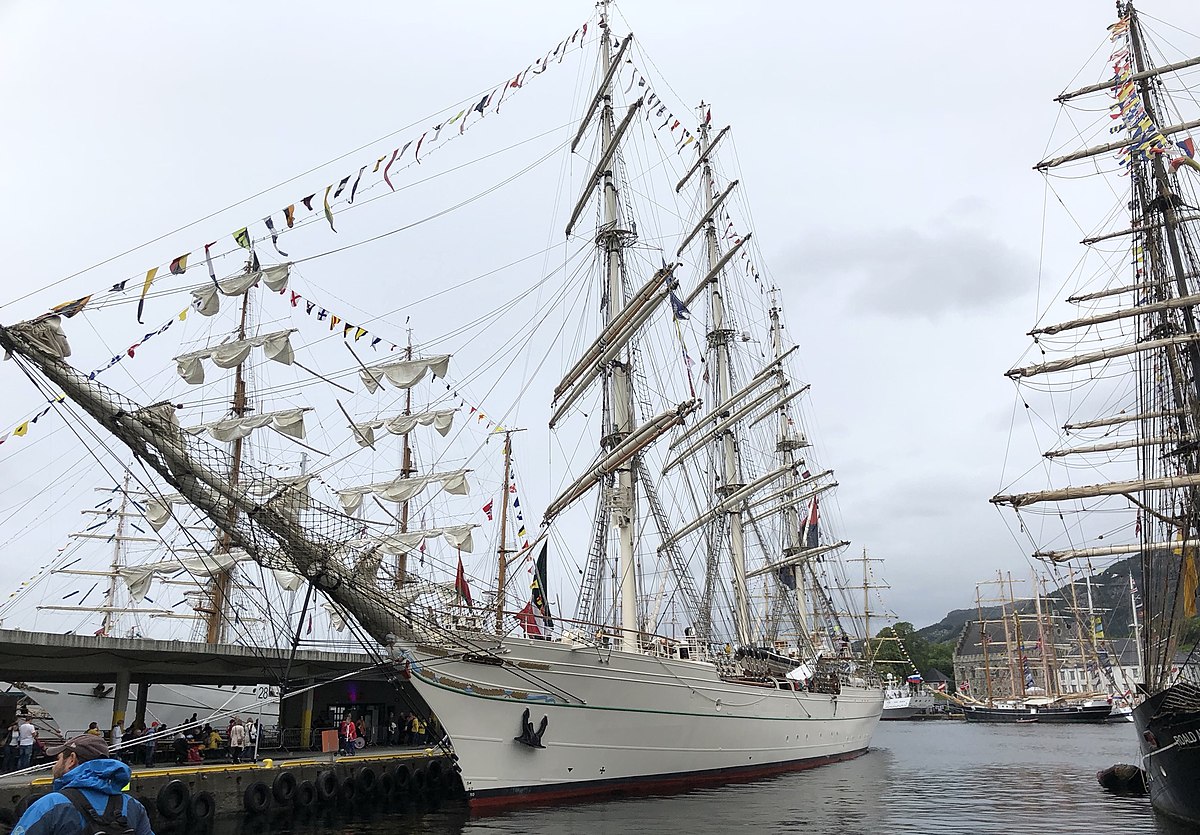
Shabab Oman II (photo: wikipedia)
We were invited by the Royal Navy of Oman onto the ship Shabab Oman II (Youth of Oman). There were only 27 students included, because of the boat capacity, and the journey was much longer: it lasted one month, not 8 days. But we prepared everything in advance, coordinated all the tasks with the Royal Navy and the captain. Everything was absolutely superb! I will never be able to thank enough to my colleague in Oman for arranging the ship and for initiating this kind of trip and also to the Sultanate of Oman, who sponsored the trip and the Royal Navy of Oman, who made it really possible sailing around Persian Gulf for 30 days.
We visited Oman, Kuwait, Saudi Arabia, Bahrain, Qatar and Dubai, where we stayed for 10 days visited the Expo. According to the students, who participated, in their words it was a real, life-changing experience.
I am so happy that I was able to include two students from the Faculty of Business and Economics, University of Pécs. The special connections, the networking that was created on the ship is most valuable, and they last a lifetime.
I think the students might not understand it right now, what it means, but they will once. Once they start working, and need to plan something internationally, they will see, how important it is to know somebody in person.
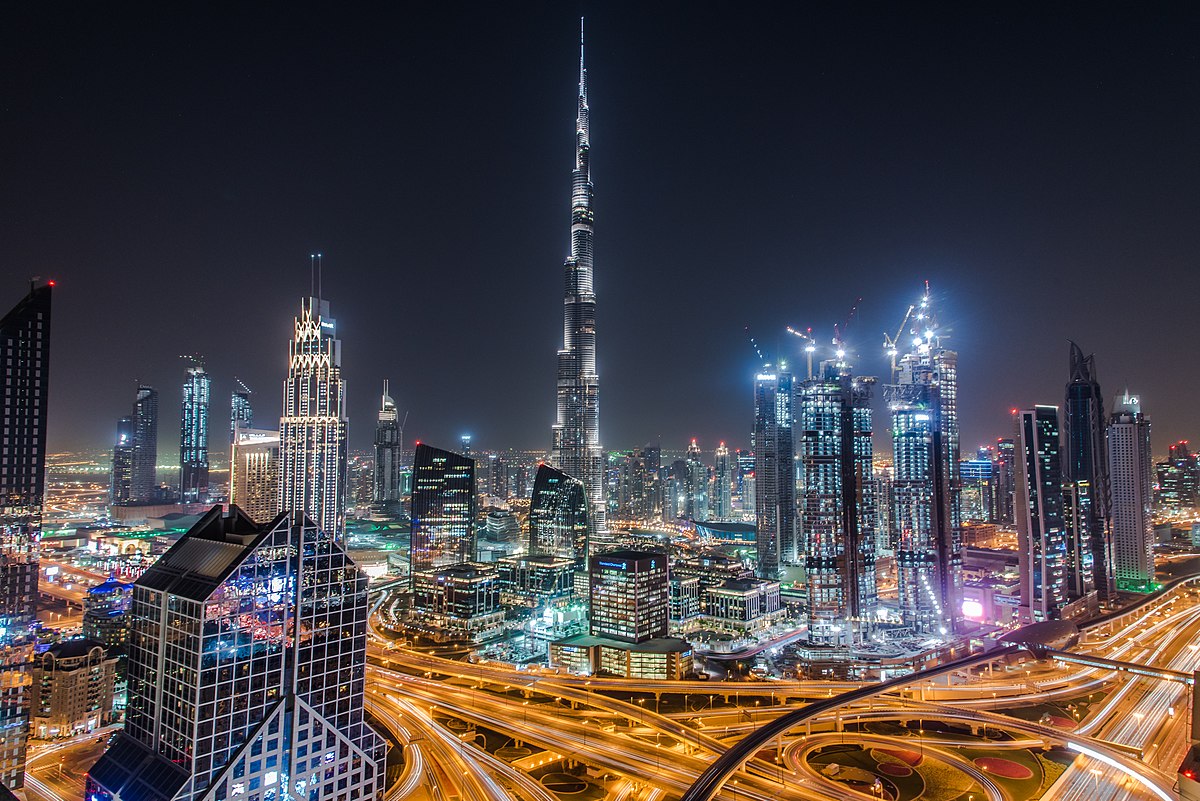
Dubai skylines at night (Photo: wikipedia)
How have you included sustainability?
The major academic focus of ITHAS 2021 has been sustainability, we concentrated on the Sustainable Development Goals 2030 that were created by United Nations World Tourism Organization. In this learning module, the assignment was for students to
choose an example from their own country and to present on board, how these SDG goals work in their own country.
It was a fantastic experience, because there are so many various practices that are followed in different countries, so the students could really see, which country takes particular emphasis, in particular SDGs.
We gave the student some theoretical background to the discussed topics to encourage them to observe everything in the countries that were on our itinerary. They should observe with their critical eyes whether these countries were good in some aspects related to the SDGs or not.
After we arrived in a new country, the students came on the boat the next day and we had a discussion about their experience related to sustainable development goals. Even the crew wanted to listen to the presentations, stimulating discussions, and critical views of students and this was really mind-opening to everyone.
Then in Dubai, the students were able to go to the Expo, which was all about sustainability. Every day, coming back from the visit, students would critically assess what they saw in each pavilion, and they were really learning fast, better than they could ever do it in the classroom.
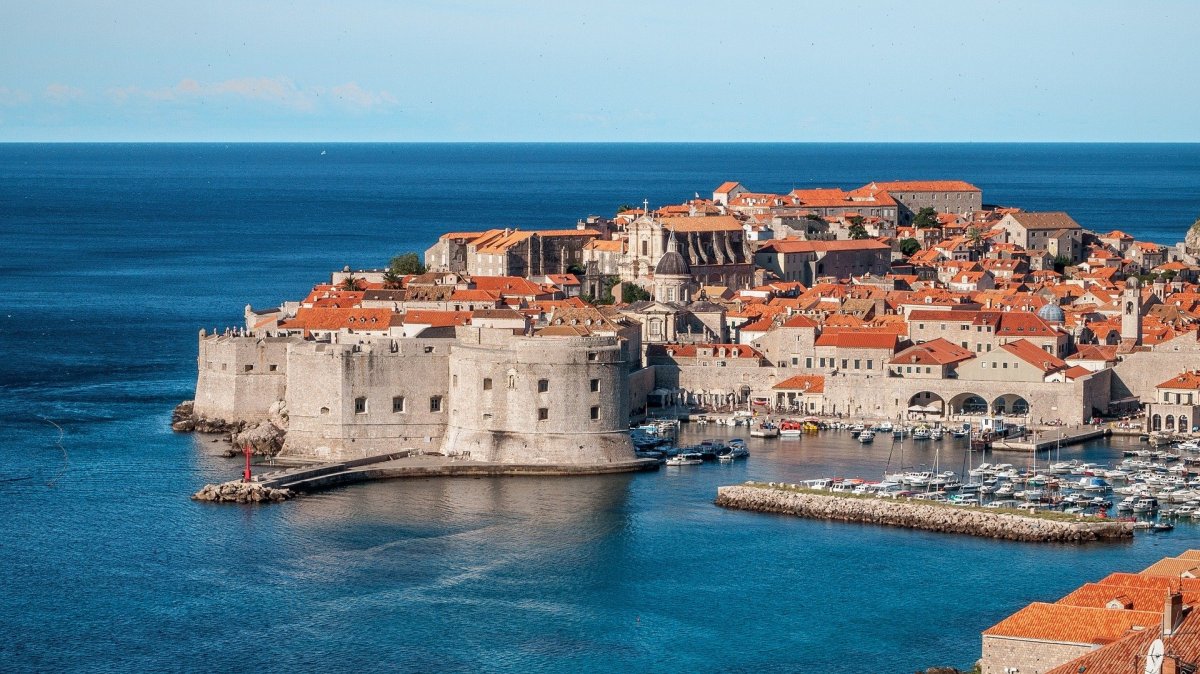
Dubrovnik, Croatia (Photo: wikipedia)
Do you have a message that you would like to share?
My first message would be for students, or anyone to think about whether they are in in the right business. Tourism and hospitality is a business where we serve, where we like to please our guests.
There are challenges, and it requires our heart and our enthusiasm. And if you get tired with serving, with being at the disposal of the clients, you do not like it, or you cannot show enthusiasm, then you better do not do this kind of job. Because you would disappoint yourself and you will disappoint your guests and it will not be good neither for the guests nor for you.
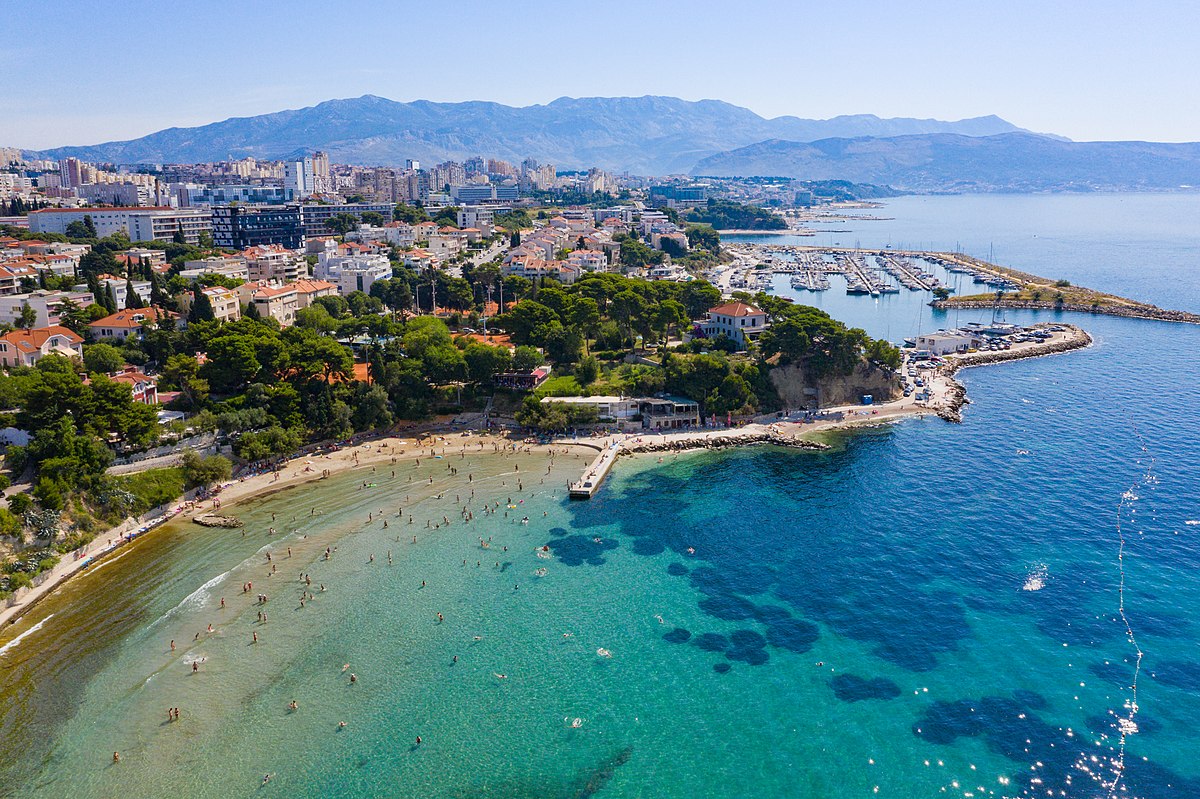
Split, Croatia (Photo: wikipedia)
My second message is never to say to the guests that you cannot do anything about something that they request. There is always something you can do. Even a small move in the right direction will show them that you care, and you will be able to help.
I usually say to my students, that there is only one thing I cannot do. Everything else is possible for me. I can make changes. Even a small change is a change, so I can do changes all the time, but I cannot do just one thing and then they usually think what is this that our professor cannot do? She can do everything. And then I would say I cannot resurrect a dead body. But until that moment I can do many things. I can always do something. Nothing is too difficult to me. Nothing is. I would never say that this is something that cannot be done better. You can always do things better, and once you finish one challenge, I immediately think if next time something like that happens. What could I do better?
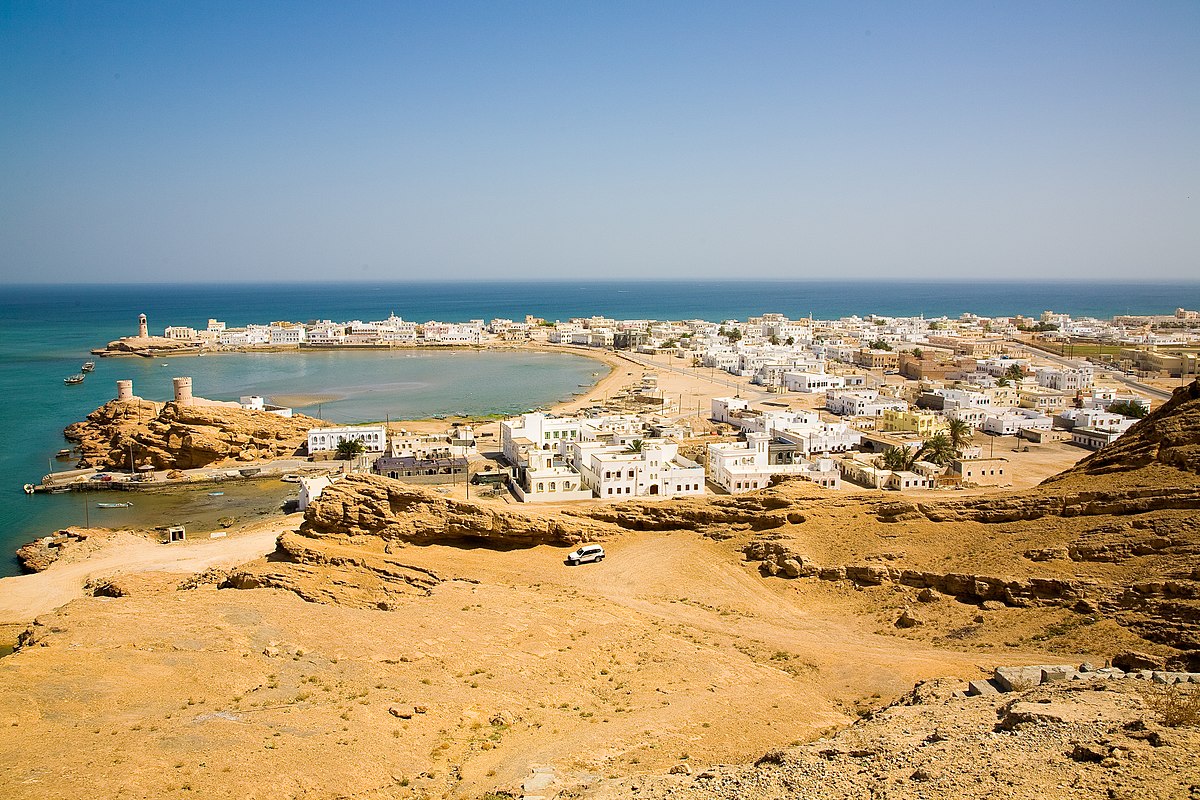
Sur, Oman (Photo: wikipedia)
Regarding sustainability, try to follow the three pillars of sustainability. Do not just think of one. And obviously, I am an economist. And I would think, for students who study in the field of Economics and Business would think that, making money is important. Oh yes, it is. But it will not be important, if you ruin the other two pillars of sustainability. So it is sometimes even more important to do the other two pillars of sustainability that in the long run you will reach also the economic sustainability.
Never think of just one pillar, economic sustainability. It always has to be combined. And then it will bring benefits for you, for your business, for the community and for the common goal.
Mariann TÓTH
- Log in to post comments
University of Pécs | Chancellery | IT Directorate | Portal group - 2020.
